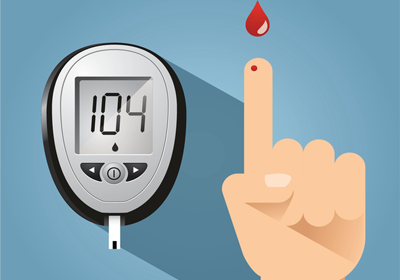Traditional and herbal medicine is still preferred by the primary health cares in many countries, with an estimate of about 60 % of the population of the world. The turmeric plant is being used as medicine for around back 4000 years. It’s a primary component of religious ceremonies in South Asia and is also used as a spice in daily life. Turmeric is also known as Indian Saffron because of its intense yellow color. It is a product of a herbaceous plant named Curcuma longa which belongs to the tropical South Asian ginger family Zingiberaceae. Approximately 133 species of Curcuma have been discovered worldwide. Most of them are used for various medicinal formulations according to their local names and exhibit many. The main active compound of turmeric is curcumin that has been used around for centuries. Not only used as a spice but there are also Pros and cons of turmeric in different medical conditions.
How does Turmeric work?
When turmeric is extracted from the roof plant, it is more effective as an anti-inflammatory. The mechanism of action is essential to elaborate on the Pros and cons of turmeric. It naturally works to help your body fight disease and illnesses and plays a vital role in helping repairmen of your body. Its inflammation-fighting skills are what make turmeric so powerful. Without anti-inflammatory drugs, the body would struggle to fight off bacteria, but it provides complete anti-inflammatory protection with possible no side effects when taken in the recommended dosage.
By keeping in view, the unique role of turmeric, some Pros and cons of turmeric are given below.
Pros of Turmeric
In human studies, turmeric has been tested against various diseases and health conditions with many positive outcomes, some of which are listed below.
- Anti-inflammation
 Turmeric has an anti-inflammatory property and anything that can help fight chronic inflammation is of potential importance in preventing and even treating chronic diseases. Curcumin in turmeric is a bioactive substance that is so powerful that it fights inflammation at a molecular level just like some anti-inflammatory drugs would, minus the side effects.
Turmeric has an anti-inflammatory property and anything that can help fight chronic inflammation is of potential importance in preventing and even treating chronic diseases. Curcumin in turmeric is a bioactive substance that is so powerful that it fights inflammation at a molecular level just like some anti-inflammatory drugs would, minus the side effects.
- Increased Antioxidants
The mechanism responsible for aging and many diseases is called oxidative damage. Oxidative damage produces free radicals in the body and these free radicals can react with organic substances, eventually harming the body and leads to certain health disorders and diseases. Curcumin protects the body from these free radicals by neutralizing them. Besides, curcumin boosts the antioxidants mechanism in the body.
- Improved Liver Function
 The antioxidant properties of turmeric allow it to prevent oxidative damage to your cells and As mentioned earlier, turmeric increases antioxidants in your body. Since the liver is the organ most exposed to toxins, turmeric helps by protecting it from oxidative damage. This ultimately improves liver performance and prevents liver-related health problems.
The antioxidant properties of turmeric allow it to prevent oxidative damage to your cells and As mentioned earlier, turmeric increases antioxidants in your body. Since the liver is the organ most exposed to toxins, turmeric helps by protecting it from oxidative damage. This ultimately improves liver performance and prevents liver-related health problems.
4. Pain Relief
 Turmeric supplements can help you relieve pain for inflammatory conditions such as arthritis. Studies suggest that turmeric seems to work as well as ibuprofen in people with arthritis in their knees.
Turmeric supplements can help you relieve pain for inflammatory conditions such as arthritis. Studies suggest that turmeric seems to work as well as ibuprofen in people with arthritis in their knees.
- Fight Age-Related Diseases
Turmeric can improve your longevity because it can help to prevent diseases like Alzheimer’s, heart disease, and cancer. Your risk for these diseases increases as you get older, and the antioxidant and anti-inflammatory effects of turmeric help to combat this.
- Brain Health
 Turmeric has been found to boost levels of brain-derived neurotrophic factor (BDNF). Many brain diseases are linked to reduced levels of BDNF which means turmeric can protect your brain from neurodegenerative diseases such as Alzheimer’s. Additionally, studies show that it helps ease the symptoms of depression.
Turmeric has been found to boost levels of brain-derived neurotrophic factor (BDNF). Many brain diseases are linked to reduced levels of BDNF which means turmeric can protect your brain from neurodegenerative diseases such as Alzheimer’s. Additionally, studies show that it helps ease the symptoms of depression.
- Heart Health
 Heart disease is the leading cause of death in the world and studies show that turmeric bioactive compound (curcumin) may help to reverse many steps in the heart disease process by improving the lining of your blood vessels those are called the endothelium. Studies also show using turmeric as a condiment can significantly lower blood cholesterol levels and suppress plaque build-up in the arteries.
Heart disease is the leading cause of death in the world and studies show that turmeric bioactive compound (curcumin) may help to reverse many steps in the heart disease process by improving the lining of your blood vessels those are called the endothelium. Studies also show using turmeric as a condiment can significantly lower blood cholesterol levels and suppress plaque build-up in the arteries.
Also Read: The Ultimate List of 10 Snacks for Heart Patients
- Treatment of Cancer
 Turmeric has been studied as a beneficial herb in cancer treatment and has been found to affect cancer growth, development, and spread of breast, colon, stomach, and skin cancer at the molecular level.
Turmeric has been studied as a beneficial herb in cancer treatment and has been found to affect cancer growth, development, and spread of breast, colon, stomach, and skin cancer at the molecular level.
Moreover, studies show that curcumin stops the growth of new blood vessels in existing tumors contributing to the elimination of cancerous cells.
- Diabetes
 Research has suggested that taking turmeric could treat and prevent diabetes. Curcumin could decrease the level of glucose in the blood and helps to moderate insulin levels. However, it is always better to consult a physician beforehand.
Research has suggested that taking turmeric could treat and prevent diabetes. Curcumin could decrease the level of glucose in the blood and helps to moderate insulin levels. However, it is always better to consult a physician beforehand.
- Digestive Aid
 Turmeric is anti-inflammatory and antioxidant which allows it to protect your digestive system. Turmeric promotes healthy digestion and nutrient absorption by decreasing gut permeability and gut inflammation. There is even a possibility that it could treat irritable bowel syndrome.
Turmeric is anti-inflammatory and antioxidant which allows it to protect your digestive system. Turmeric promotes healthy digestion and nutrient absorption by decreasing gut permeability and gut inflammation. There is even a possibility that it could treat irritable bowel syndrome.
- Healthy skin
 Thanks to its anti-inflammatory and antibacterial properties, turmeric can prove to be magic on various skin conditions. It could speed up wound healing and calm the pores to help reduce acne. It can also prevent scarring and sun damage. It is also perfect for reducing puffiness and under-eye darkness.
Thanks to its anti-inflammatory and antibacterial properties, turmeric can prove to be magic on various skin conditions. It could speed up wound healing and calm the pores to help reduce acne. It can also prevent scarring and sun damage. It is also perfect for reducing puffiness and under-eye darkness.
Cons of Turmeric
While turmeric is a fabulous herb with surprising health benefits, it’s also quite powerful but the Pros and cons of turmeric exist side by side together and can strongly imbalance the body if over-used. Let’s take a look at some of the cons of turmeric.
- Upset Stomach
 Turmeric is known to heat your body which might lead to abdominal pain and cramps. Some people may experience nausea, diarrhea, and mild stomach distress, especially when taking high doses for prolonged periods.
Turmeric is known to heat your body which might lead to abdominal pain and cramps. Some people may experience nausea, diarrhea, and mild stomach distress, especially when taking high doses for prolonged periods.
- Blood Thinning
Turmeric is known to be responsible for thinning your blood which might be linked with its benefits, such as lowering cholesterol and blood pressure. Turmeric makes you bleed more easily, so, people who take blood-thinning drugs like should avoid consuming large doses of turmeric.
- Risk of Developing Kidney Stones
 Turmeric contains oxalates, which can form calcium oxalate kidney stones which happen to be the most common type of kidney stones. So, people with kidney stones should consider the Pros and cons of turmeric. They should avoid turmeric.
Turmeric contains oxalates, which can form calcium oxalate kidney stones which happen to be the most common type of kidney stones. So, people with kidney stones should consider the Pros and cons of turmeric. They should avoid turmeric.
- Allergic Reaction
Some people might have allergic reactions to turmeric, so it is better to consult a dermatologist first. It might cause rashes, outbreaks, and even shortness of breath. Allergic reactions can occur from both ingestion and skin contact.
- Iron Deficiency
Adding too much turmeric in your diet could decrease the body’s ability to absorb iron. So, people with iron deficiency should be careful not to add too much turmeric in their daily meals because it could decrease the body’s ability to absorb iron.
- Stimulate Labor
For pregnant women, large doses of turmeric can stimulate contractions. Combined with the blood-thinning effects, these early contractions could be problematic for pregnant women. They should discuss their condition and Pros and cons of turmeric with healthcare before use.
Conclusion
 The pros and cons of turmeric have been discussed in detail. Conclusively, it is most effectively used as a supplement and to achieve results, the supplement must contain the advised dosage of curcumin as it is the most powerful component. Although the pros of turmeric health benefits usually outweigh the cons, it’s important to know that there can be some side effects. The Indian Saffron supports immune health, helps relieve pain, and can aid in digestion among other things, but it is better to use caution when using it. As with any other supplements, it’s better to speak to your doctor before incorporating it into your diet.
The pros and cons of turmeric have been discussed in detail. Conclusively, it is most effectively used as a supplement and to achieve results, the supplement must contain the advised dosage of curcumin as it is the most powerful component. Although the pros of turmeric health benefits usually outweigh the cons, it’s important to know that there can be some side effects. The Indian Saffron supports immune health, helps relieve pain, and can aid in digestion among other things, but it is better to use caution when using it. As with any other supplements, it’s better to speak to your doctor before incorporating it into your diet.




